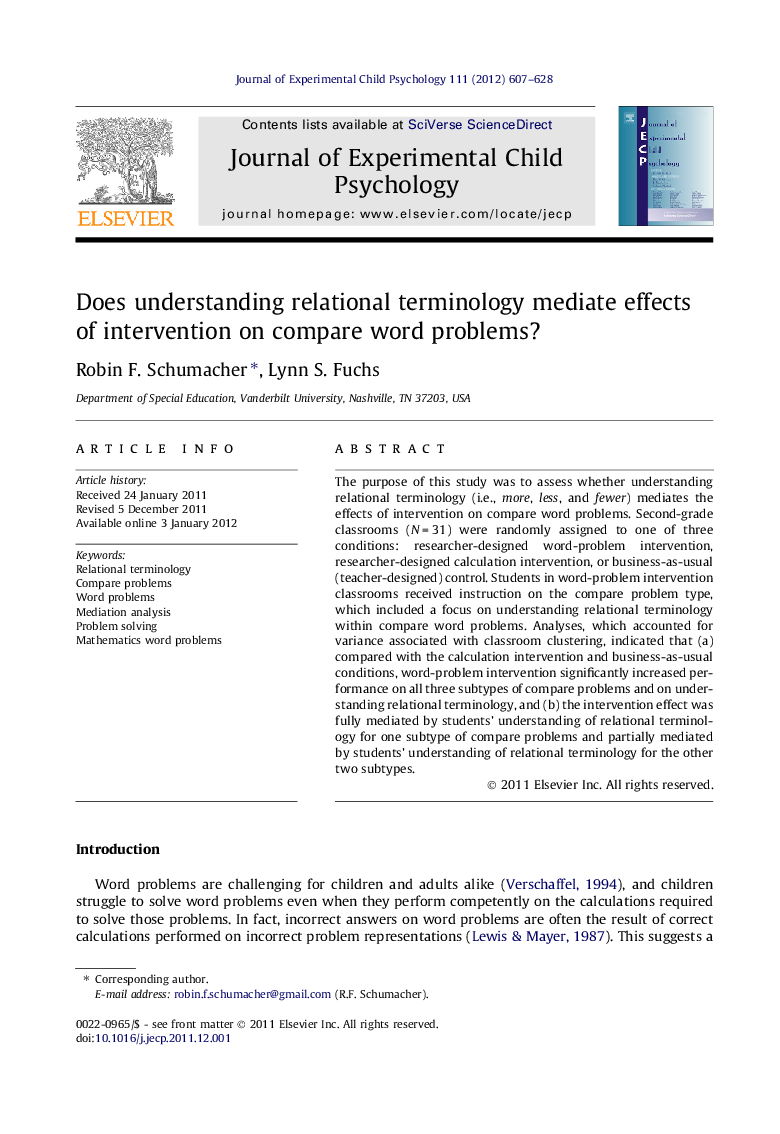| کد مقاله | کد نشریه | سال انتشار | مقاله انگلیسی | نسخه تمام متن |
|---|---|---|---|---|
| 918267 | 919467 | 2012 | 22 صفحه PDF | دانلود رایگان |

The purpose of this study was to assess whether understanding relational terminology (i.e., more, less, and fewer) mediates the effects of intervention on compare word problems. Second-grade classrooms (N = 31) were randomly assigned to one of three conditions: researcher-designed word-problem intervention, researcher-designed calculation intervention, or business-as-usual (teacher-designed) control. Students in word-problem intervention classrooms received instruction on the compare problem type, which included a focus on understanding relational terminology within compare word problems. Analyses, which accounted for variance associated with classroom clustering, indicated that (a) compared with the calculation intervention and business-as-usual conditions, word-problem intervention significantly increased performance on all three subtypes of compare problems and on understanding relational terminology, and (b) the intervention effect was fully mediated by students’ understanding of relational terminology for one subtype of compare problems and partially mediated by students’ understanding of relational terminology for the other two subtypes.
► When used in word problems, relational terminology is challenging for young students.
► Instruction on relational terminology was tested within a word-problem intervention, using a randomized control trial.
► Students’ problem-solving skills improved more than a comparison group.
► Students’ understanding of relational terms also improved.
► Word-problem outcomes were mediated by students’ understanding of relational terms.
Journal: Journal of Experimental Child Psychology - Volume 111, Issue 4, April 2012, Pages 607–628